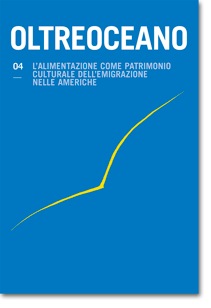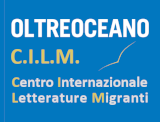Il ricettario e la costruzione americana
Parole chiave:
Juana Goritti, ricette, donne, amicizia, americanitàAbstract
Attraverso la stesura del ricettario, la scrittrice argentina Juana Goritti ricostruisce la storia del suo paese, il cui tracciato è fissato da piccole storie individuali che vanno di pari passo con le ricette: le amiche le affidano il compito di rappresentarle. Si tratta di un’operazione trasgressiva in quanto, attraverso una modalità squisitamente femminile la scrittrice si inserisce nel discorso politico assegnato agli uomini, da una posizione scritturale periferica – il ricettario di cucina, per l’appunto – partecipando alla costruzione culturale dell’americanità.
Cookbooks and the Construction of Americanness
Argentinian writer Juana Goritti reconstructs the history of her country in her cookbook which commingles the short personal stories and recipes that her friends have entrusted her with. Her act is transgressive because, through an exquisitely feminine mode, she inserts herself in a traditionally male political discourse from a peripheral writing position – that of the cookbook – thereby partaking in the cultural construction of Americanness.
Downloads
Riferimenti bibliografici
Aguirre Lavayen, J. (1991): En las nieves del Ande. Santa Cruz de la Sierra: Amigos del libro.
Barrera, T. (2006): La iniciación femenina: Juana Manuela Gorriti en la Cocina. In. E. Perassi & S. Regazzoni (Eds.), Mujeres en el umbral (pp. 161-172). Sevilla: Renacimiento.
Cattarulla, C. (2003): Cocina Ecléctica di Juana Manuela Gorriti: Un Progetto transnazionale. In C. Giorcelli (Ed.), Donne d’America, pp. 87-97). Palermo: ila palma.
Ferré, R. (1984): La cocina de la escritura. In P.E.González & E. Ortega (Eds.), La sartén por el mango. Río Piedra: Huracán.
Gorriti, J. M. (1994): Cocina ecléctica, Obras Completas, III (pp. 151-350). Salta: Fundación del Banco del Noreste Coop. Ltdo.
Irriarte, J. & Torre, C. (1993): La mesa está servida. C. Iglesias (Ed.), El ajuar de la patria. Ensayos críticos sobre Juana Manuela Gorriti (pp. 45-61). Buenos Aires: Feminaria.
La Cruz, J.I. de (2007): Respuesta a sor Filotea. Málaga: Miguel Gómez.
Perassi, E. & Regazzoni, S. (Eds.): Mujeres en el umbral. Sevilla: Renacimiento. 2006.
Regazzoni, S. (1984): Juana Manuela Gorriti: notas sobre la disolución del Exotismo. E. Caldera (Ed.), Il linguaggio romantico. Atti del III Congresso sul romanticismo spagnolo e ispanoamericano,12-14 aprile 1984 (pp. 101-106). Genova: La Quercia.
Regazzoni, S. (2004): Azione e pensiero in due scrittrici latinoamericane dell’800: la Condesa de Merlin e Juana Manuela Gorriti. In I. Crotti & R. Ricordi (Eds.), Lo spazio della scrittura. Letterature comparate al femminile (pp. 73-91). Padova: Il Poligrafo.
Regazzoni, S. (2006): Tú que me miras, yo que te cuento (sobre Juana Manuela Gorriti y Gertrudis Gómez de Avellaneda). Revolución y Cultura, 4, pp. 8-11.
Regazzoni, S. (2007): Transgresiones y conformismos en la construcción de la heroína en el siglo XX hispanoamericano. Rassegna Iberistica, 85, pp. 17-29.
Regazzoni, S. (2008): Viajeras al (en el) Nuevo Mundo. Rassegna Iberistica, 87, pp. 3-19.
Riglos de Orbegoso, R. M. (1994): Lomito criollo. In J. M. Gorriti, Cocina ecléctica, Obras Completas, III (pp. 304-305). Salta: Fundación del Banco del Noreste Coop. Ltdo.
Royo, A. (1999): Siglo XIX: Escrituras de la historia del salón a la Cocina. In A. Royo (Ed.): Juanamanuela muchopapel (pp. 151-240). Salta: Robledal.
Scott, N. M. (1992 may): Juana Manuela Gorriti Cocina Ecléctica. Hispania, 75, 2, pp. 310-314.
Simón Palmer, M. del C. (1977): Bibliografía de la gastronomía española. Notas para su realización. Madrid: Velázquez.
Simón Palmer, M. del C. (1977): La cocina de palacio, 1561-1931. Madrid: Castalia.
Simón Palmer, M. del C. (2003): Bibliografía de la alimentación en España. Madrid: Trea.
Downloads
Pubblicato
Come citare
Fascicolo
Sezione
Licenza

Questo lavoro è fornito con la licenza Creative Commons Attribuzione - Non commerciale - Condividi allo stesso modo 4.0 Internazionale.
Gli autori si impegnano a rispettare le seguenti condizioni, che s’intendono accettate al momento della sottomissione per la stampa dei propri contributi.
L’invio di un testo implica che esso sia inedito e non in attesa di essere pubblicato altrove.Gli autori si impegnano a rispettare le seguenti condizioni, che s’intendono accettate al momento della sottomissione per la stampa dei propri contributi.
- Qualora venga accettato, l’autore conferisce all’editore il diritto di pubblicarlo e distribuirlo sia in forma cartacea che nell’edizione elettronica in rete. Gli articoli pubblicati saranno scaricabili e resi disponibili in open access.
- Purché segnali correttamente che la prima pubblicazione è avvenuta sulla rivista «Oltreoceano. Rivista sulle migrazioni», l’autore ha facoltà di: a) riprodurre l’articolo in estratti separati o raccolti in volume; b) pubblicare l’articolo nel proprio sito personale o in quello di corsi di insegnamento purché si tratti di siti di natura non commerciale; c) depositare l’articolo in archivi online di carattere non commerciale, legati all’istituzione di appartenenza o come parte di progetti di diffusione non commerciale e open access dei lavori scientifici.
Non è consentita l’utilizzazione dei contributi da parte di terzi, per fini commerciali o comunque non autorizzati. L’editore declina ogni responsabilità sull’uso non autorizzato del materiale pubblicato sulla rivista.













